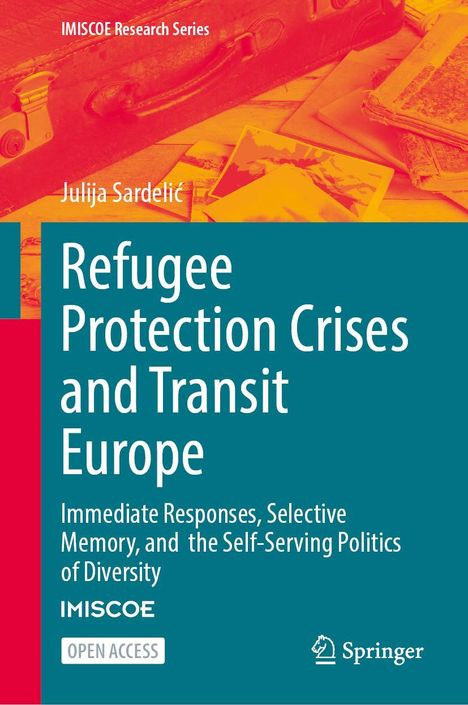Julija Sardeli¿: Refugee Protection Crises and Transit Europe, Gebunden
Refugee Protection Crises and Transit Europe
- Immediate Responses, Selective Memory, and the Self-Serving Politics of Diversity
- Verlag:
- Springer, 08/2025
- Einband:
- Gebunden
- Sprache:
- Englisch
- ISBN-13:
- 9783032012746
- Artikelnummer:
- 12337622
- Umfang:
- 136 Seiten
- Gewicht:
- 375 g
- Maße:
- 241 x 160 mm
- Stärke:
- 14 mm
- Erscheinungstermin:
- 31.8.2025
- Hinweis
-
Achtung: Artikel ist nicht in deutscher Sprache!
Klappentext
This open-access book presents a socio-legal analysis of immediate responses to large-scale refugee displacement in Europe after the 1951 Refugee Convention came into force, focusing on the countries to which refugees initially fled or through which they passed (namely Austria and, initially, Yugoslavia, followed by several of the former Yugoslav countries). First, it investigates the immediate responses to refugee movements following the suppression of the 1956 Hungarian Revolution by Soviet troops. Second, it examines the responses to individuals seeking asylum after being displaced during the post-Yugoslav wars of the 1990s. Third, it analyses the responses of the same countries to refugees fleeing Global South countries (predominantly Syria, Iraq, and Afghanistan) in 2015 and 2016. Finally, it explores how these countries responded to the mass displacement of refugees from Ukraine. The book argues that these countries have positioned themselves as "transit" or temporary protection countries in order to avoid assuming long-term responsibility for a larger number of refugees. As a consequence, they granted various forms of temporary legal status to refugees that differed from the refugee status defined in the 1951 Refugee Convention. These legal statuses were hierarchical (in terms of the rights attached to them) and racialized, with the fewest rights granted to refugees from the Global South and other negatively racialized groups. The book traces the usage of self-serving politics of diversity and selective memory to legitimise why refugees could not be protected long-term in these countries, and also why there were such differences in treatment of refugees.


